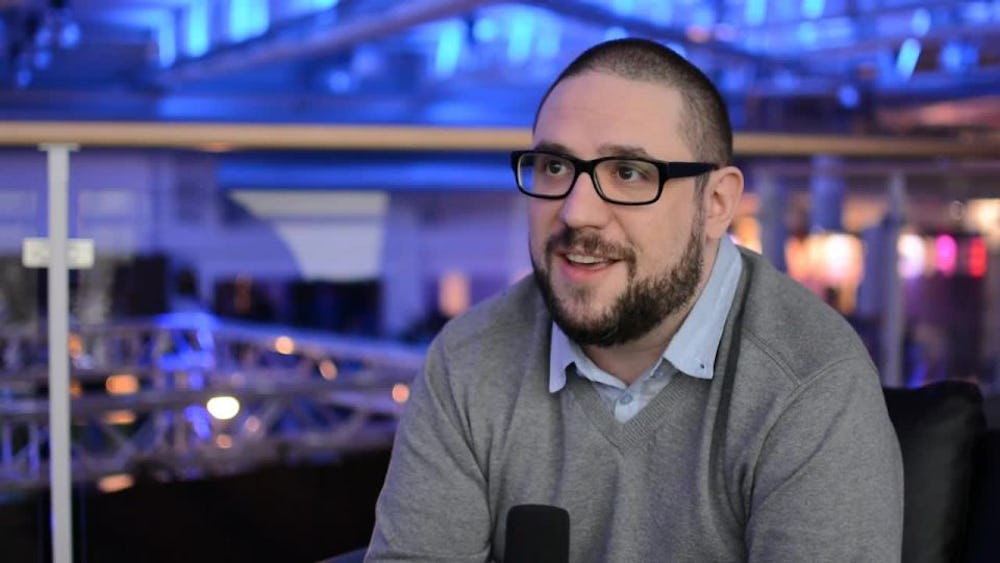
Transkript
Drei Ratschläge an Dein 14jähriges Ich!
If I could travel back in time meet my 14 year old self and give him some advice, first thing I would probably tell him not everything needs to be a fight. You can arrive at consensus that isn’t a failure, sometimes that can be the best path, I would say as well focus more on finishing what you start and even though you’ve got lots of ideas, sometime applying yourself to one idea specifically at a time can be something worth doing, rather than trying to start lots of projects and not finishing any of them. Probably the other thing would be to play a little bit more because you can take things and put it into your work environment through socializing rather than just concentrating on work, work all the time.
Was steht auf Deiner Visitenkarte?
My name is Richard Lewis I’m a senior stuff writer and columnist at the Daily Dot.
Was ist das coolste an Deinem Job?
Coolest thing about my job besides working from home which is super cool is obviously the travel getting to come to events like Dreamhack where we are at the moment and meet lots of people from a variety of different back grounds and get to know them, so it’s very people oriented job.
Welche Einschränkungen bringt Dein Job mit sich?
The limitation, I sometimes feel that you kind of get bound chained a little bit to you PC because writing can take … it takes as long as it takes. If your inspired that particular day maybe you can finish all your work in a very quick period of time, if you’re not sometimes you can just be stuck in a office the whole, day goes by and you don’t really realize that you’ve missed out on whatever else was going on, so there’s no structure to it, it just takes as long as it takes which can be frustrating sometimes if you’ve got other things in your agenda that you would like to do.
Worum geht es in Deinem Job?
So Dreamhack as I’m sure you’re away is a very big event for gaming and internet culture combines the two. I’m here to report on that, primarily in the form of pulling people in to do interviews and ask them things that are happening here, why they’re her and what’s going on in their lives. The Daily Dot is a big online internet news paper that documents internet related cultural phenomenon, so that can be anything from cats playing with balls of string or to latest advances in technology pertaining to computers and that sort of thing. I get to write it all, I scout the internet for interesting stories and then present my take on them or breaking new relating to things in those areas. I’m quite fortunate in a sense that I work from home, it’s Texas based publication as you can tell by accent I live in the UK. I get up I got my own little office, make breakfast again I guess minus the water melon, go in and sit in my computer and write, type for hours on end.
Wie sieht Dein Werdegang aus?
Born in London, in England United Kingdom, I grew up in the North East of England, that’s why my accents a little bit bungled, I went to University and I studies media and Journalism and I was unable to get a job straight from university in that field so I worked primarily as a sales person and a sales manager for a long time till I got my first break as a reporter. Been writing about gamming and E-Sports and internet type stuff for about 10 years now. It’s been a slow steady climb to the top but this is the first job where I’ve got full autonomy and it’s very rewarding and satisfying.
Ginge es auch ohne Deinem Werdegang?
In answering the question would it be possible without my background I’d say no. So the skills required to do my job specifically good grasp of written English and then being able to assimilate lots of information at once and cut through any PR spins or have a very good understanding at the top of your hand, having opinions is definitely useful, because you write a lot of editorial work and people want to know what senior people think about certain things but ultimately the main thing is being able to write in an engaging way, in way that people want to read and will invest the time into.
